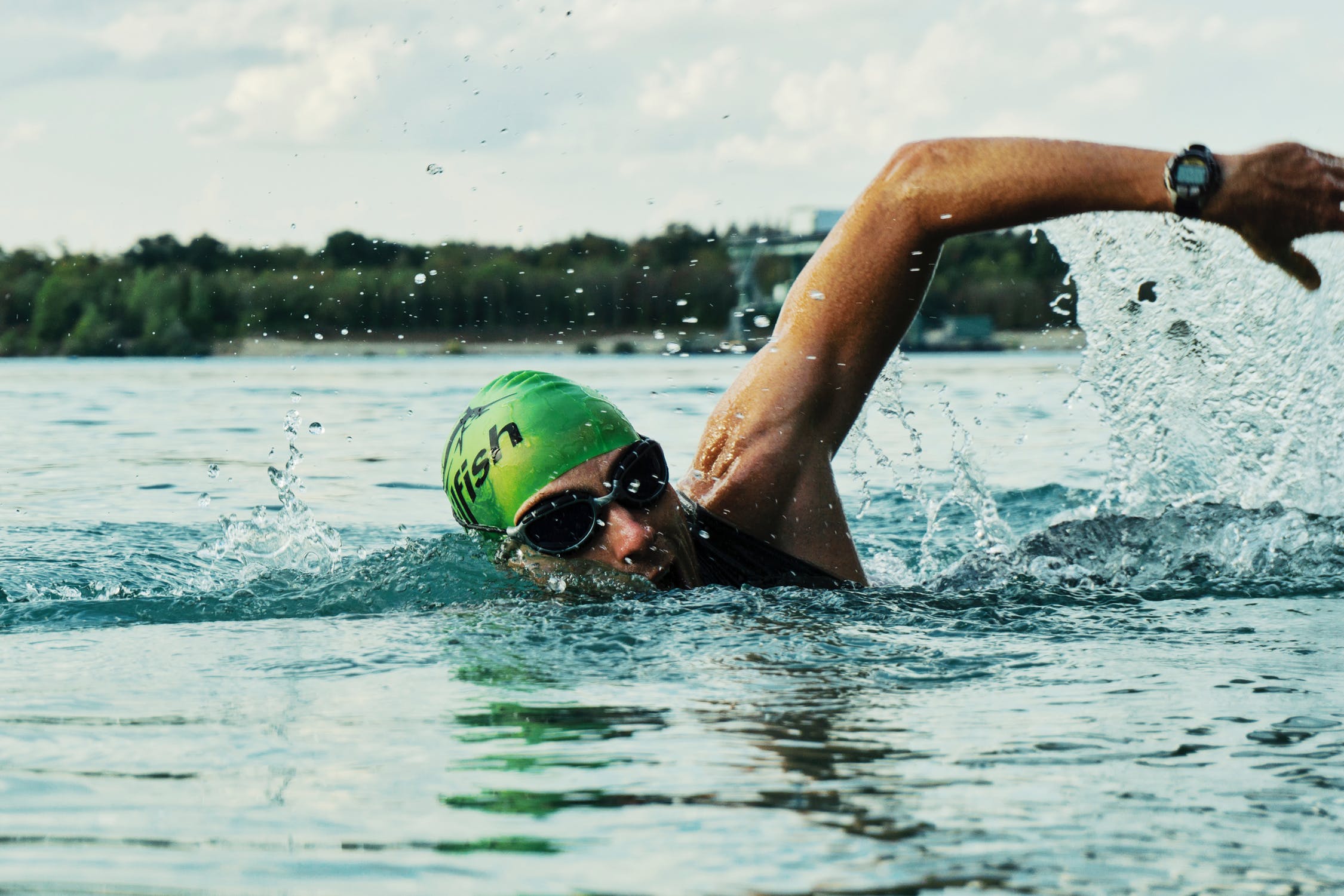
Sports psychology is an emerging field of study on how our minds can affect physical and athletic performance.
According to Peter Crocker, a sports psychologist and professor at the University of British Columbia, “Elite athletes have been using psychological techniques for years…it used to be that something had to be wrong for an athlete to consult a sports psychologist, now they do it to gain an edge.”
Whether it’s a motivational speech in the locker room, or a brief visualization after practice, coaches and athletes are well-aware that they must be as psychologically prepared as they are physically prepared before competing.
The book Human Potential: Exploring Techniques Used to Enhance Human Performance does an excellent job describing the many different techniques athletes use to improve themselves.
In this article I describe 4 mental exercises that athletes use to give themselves that extra edge.
1. Self-Talk
During the London 2012 Summer Olympics, chef de mission Mark Tewksbury had been repeating the mantra, “Why not me?” to Canadian athletes to help motivate them and inspire them. This optimistic self-talk is just one example of the use of mantras and affirmations in today’s sports, but it has become a very popular and effective practice.
A recent meta-analysis of over 32 studies discovered that different forms of self-talk can improve sports performance.
For example, when trying to sharpen particular skills or improve technique, “instructional self-talk” was found to be very effective in improving learning and muscle control. One example of this may be a golfer reminding themselves to “keep your knees bent” or “swing with your hips.”
On the other hand, when trying to build up strength and confidence before a game, “motivational self-talk” was very effective in pumping athletes up and getting the energy flowing. An example of this kind of self-talk would be something like “Let’s get em!” or “We can do this!”
Self-talk is one of the most researched topics in sports psychology and it’s something almost every professional athlete uses during their training.
2. Visualization
Another popular mental exercise used by athletes is visualization. In preparation for a game, athletes will run through different situations in their imagination as a kind of mental rehearsal. This way, when they are confronted with the situation in real-life, there mind is already primed to respond to the situation in an effective way.
Thomas Hall is one of many Olympic athletes who attributes his success to this technique. He was an underdog during the Beijing 2008 Olympics, not expected to reach the podium, but he ended up finishing strong with a Bronze medal – an accomplishment he attributes to his diligent visualization and mental rehearsal.
Contrary to common misconceptions, visualization is most effective when athletes focus on process rather than outcomes.
The goal isn’t to imagine yourself already standing on the podium holding your medal, but instead imagine yourself putting in the work and doing the actions necessary to really get there.
Visualization isn’t about channeling the universe (ie “The Secret”) or any other kind of superstition. Instead, it’s a mental exercise that conditions your mind and body to act accordingly in the real world – and that’s what brings results.
Check out this recent article for more advice on visualization.
3. Reframing
Reframing is one’s ability to look at a situation or event from a different perspective. This is an important exercise for athletes, because it teaches them to see their failures as learning opportunities, and thereby extract the positive from all their experiences.
The ability to reframe anything allows athletes to maintain a positive and optimistic attitude even during hard times.
When Michael Phelps started the London 2012 Olympics with a few disappointing days, he was able to turn his attitude around by reminding himself to “have fun in there.” Three days later he won his first gold medal of 2012, and shortly after became the all-time record holder for most Olympic medals ever won.
Often people experience a loss or failure and decide to give up. However, reframing gives individuals the power and resilience to keep pushing themselves and improving.
Elite athletes and Olympians are masters at reframing, whether they do it consciously or not. For more information, check out these tips on reframing your perspective.
4. Meditation
One mental exercise that is growing in popularity within Sports Psychology is meditation. Just 15-30 minutes each day of a simple breathing meditation can help improve focus and concentration – facets of our minds that are hugely important when competing in sports and Olympic games.
Psychologist Mihály Csíkszentmihályi identified that many successful athletes enter into a state called flow – a highly energized and focused state of attention on whatever task the athlete is trying to accomplish. Often this state is accompanied by a lost sense of time and self – athletes and coaches refer to this state as “being in the zone.”
Meditation is an excellent way to train your mind to become relaxed, focused, and “in the zone.” It teaches you how to ignore distractions and instead focus all your energy and resources on the competition.
Enter your email to stay updated on new articles in self improvement:
